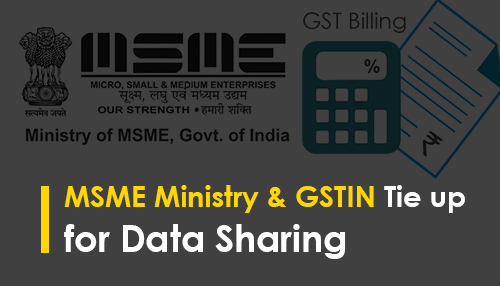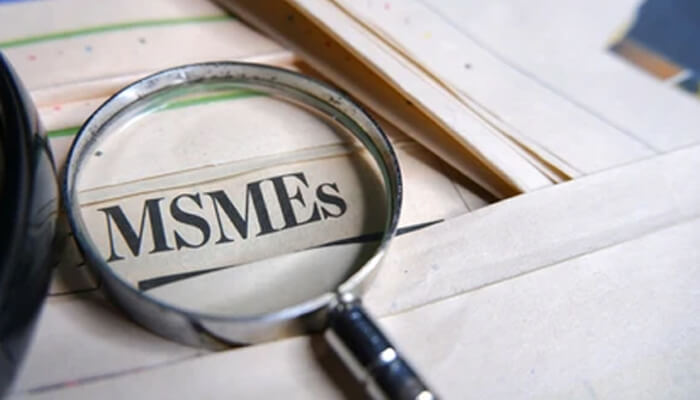The recent collaboration between the MSME Ministry and GSTIN marks a significant step forward in enhancing data sharing between the two entities. This partnership is designed to streamline the exchange of vital information, offering greater support and compliance tools for micro, small, and medium enterprises (MSMEs).
What is GST?
GST (Goods and Services Tax) is the greatest roundabout assessment change in India. GST is a solitary expense on the supply of merchandise and ventures. This is a goal-based assessment. GST has subsumed charges like Central Excise Law, Service Tax Law, VAT, Entry Tax, Octroi, and so on. GST is relied upon to unite state economies and enhance the general financial development of the country. GST is a thorough circuitous indirect tax levy on the manufacture, sale, and consumption of goods as well as services at the national level. It will supplant all roundabout assessments demanded on merchandise and ventures by states and Central. Organizations are required to acquire a GST Identification Number in each state they are enlisted.
What Is MSME?
MSME stands for Micro small and medium enterprises. They are little-measured substances characterized by their venture. They play a basic part in the economy by giving work to the vast number of individuals who can be untalented and semi-skilled. Thereby adding to sends out, raising assembly segment generation, and stretching out help to greater enterprises by providing crude material, essential merchandise, completed parts and segments, and so on. The MSMEs are classified as far as an investment made in plant and machinery if they are working in the manufacturing sector and investment in equipment for service sector companies.
What Is GSTN?
Goods and Services Tax Network (GSTN) is a Section 8 (under the New Organizations Act, not revenue-driven organizations that are represented under Segment 8), non-government, privately restricted organization. The Company has been set up principally to give IT frameworks and administrations to the Central and State Governments, citizens, and different partners for the execution of the Goods and Services Tax (GST). The Authorized Capital of the organization is Rs. 10,00,00,000 (Rupees ten crore as it were).
Impact Of GST On MSME
• The expanding formalization of the Indian economy, particularly through digitization, is a relentless propel that will overturn the plan of action — given the twin arbitrage of work and money exchanges — of miniaturized scale, little and medium undertakings (MSMEs).
• India’s change in outlook to the Goods and Services Tax (GST) administration in July will expand their consistency expenses and catch a greater part of them into the roundabout assessment net out of the blue.
• Up until now, sloppy MSMEs have become speedier than composed associates given lower cost structures coming from charge evasion, not paying standardized savings advantages to workers, (for example, provident reserve and tip), and extracting obligation (if turnover is under ₹1.5 crore).
• Some MSMEs likewise downplay worker bases or set up numerous dares to abstain from rupturing charge edges. Such sharp practices have helped them value items and administrations aggressively finished a previous couple of decades and keep up working edges at sorting out player levels.
• The changes coming about because of the effect of GST are many. To mind, makers, the decrease in the edge for GST exception to ₹20 lakh from ₹1.5 crore implies a huge number of chaotic MSMEs will soon be thrown into the assessment net.
• What’s more, computerized exchange trials made by double confirmation of solicitations under GST will reinforce assess consistency. Furthermore, a lower taxation rate under GST will diminish the cost of crude materials and coordination.
• For instance, an examination by Crisil demonstrates that cargo expenses could decrease by 1.5-2 per penny once GST kicks in.
• Apart from this, GST Return Filing is easier as compared to previous tax returns.
MSME Ministry and GSTN to make an Agreement for data sharing
The MSME service will soon consent to an arrangement with GSTN, the IT spine of GST, for sharing of information identified with small and medium endeavors as it hopes to augment its compass on such ventures, an official source said. Around 44 lakh micro, small and medium enterprises (MSMEs) are enrolled with the service’s Udyog Aadhar entryway, while the quantity of MSMEs on the GSTN database is around 1 crore.
Because of the move, the number of MSMEs enrolled under Udyog Aadhaar could shoot up to one crore, the authorities said. Information sharing will empower the administration to contact more MSMEs and instruct them on benefits offered by government plans. In addition, these organizations will have the capacity to gain credit at a lower cost, while enhancing the stream of credit.
The GST database of MSMEs has achieved one crore. This is exceptionally bona fide information, so we are trusting that we can interface our figures in light of Udyog Aadhaar with GST information,” a senior authority in the service told PTI. As per sources, top authorities in the MSME service have effectively addressed their partners in Finance in such a manner. Another authority said an MoU (Memorandum of Understanding) would soon be marked for information sharing and mixing between the MSME service and GSTN.
Conclusion:
Data-sharing will enable the government to reach out to more MSMEs and educate them on the benefits offered by government schemes that are offered by the Government of India for the betterment of the MSME sector.



